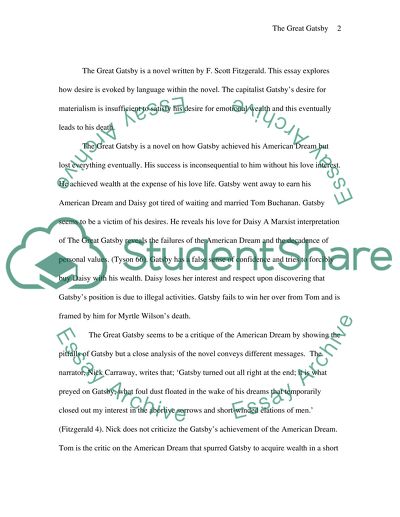Cite this document
(“Great Gatsby by F. Scott Fitzgerald Book Report/Review - 1”, n.d.)
Great Gatsby by F. Scott Fitzgerald Book Report/Review - 1. Retrieved from https://studentshare.org/literature/1501928-great-gatsby-by-f-scott-fitzgerald
Great Gatsby by F. Scott Fitzgerald Book Report/Review - 1. Retrieved from https://studentshare.org/literature/1501928-great-gatsby-by-f-scott-fitzgerald
(Great Gatsby by F. Scott Fitzgerald Book Report/Review - 1)
Great Gatsby by F. Scott Fitzgerald Book Report/Review - 1. https://studentshare.org/literature/1501928-great-gatsby-by-f-scott-fitzgerald.
Great Gatsby by F. Scott Fitzgerald Book Report/Review - 1. https://studentshare.org/literature/1501928-great-gatsby-by-f-scott-fitzgerald.
“Great Gatsby by F. Scott Fitzgerald Book Report/Review - 1”, n.d. https://studentshare.org/literature/1501928-great-gatsby-by-f-scott-fitzgerald.


